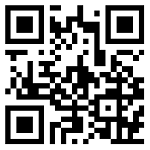提醒:点这里加小编微信(领取免费资料、获取最新资讯、解决考教师一切疑问!)
[误] Look, the door is open, Maybe someone broke into.
[正] Look, the door is open, Maybe someone broke in.
[正] Look, the door is open, Maybe someone broke into the office.
[析] in是表达一个静止状态,在与break连用时其后不加介词宾语,而into则是动态介词,与break连用时要加介词宾语。
[误] I'll leave Beijing to Shanghai tomorrow.
[正] I'll leave Beijing for Shanghai.
[正] I'll leave for Shanghai.
[析] leave for 是离开某地去某处的固定搭配,不可将for改为别的介词。这样的搭配还有:start for 动身前往某处,set out for, sail for。
[误] I'm sorry. I have to get out the bus at next stop.
[正] I'm sorry. I have to get out of the bus at next stop.
[析] get in, 与 get out是两个相反的词组。get in 为上车,而get out为下车,但语法家认为这里的in与out为副词,所以其后不能接名词,我们可以讲We'd better get in. 或We'd better get out. 还有一组词组有关上下车:get on/off(a train, a ship, a struck) get into/out of (a car, taxi…)
[误] Be careful The temperature of the water is ninety degrees over zero.
[正] Be careful. The temperature of the water is ninety degrees above zero.
[析] over 与 above 在作为比某物高的意思时有时可以互换。但在垂直方向上的高矮时,即正上方时则要用above.而泛指上方时用over.
[误] There is an old stone bridge above the river.
[正] There is an old stone bridge over the river.
[析] over还有一意为"跨越,横跨"。
[误] The Dead Sea is under the sea level.
[正] The Dead Sea is below the sea level.
[析] 在垂直下方要用below. 也就是讲above与below互为反意词,over与under也是反意词。
[误] There is a big tree in the front of the house.
[正] There is a big tree in front of the house.
[析] in front of 是在物体外部的前面,而in the front of 是在物体内部的前面,如:The driver sits in the front of the bus.
提醒:点这里加小编微信(领取免费资料、获取最新资讯、解决考教师一切疑问!)









